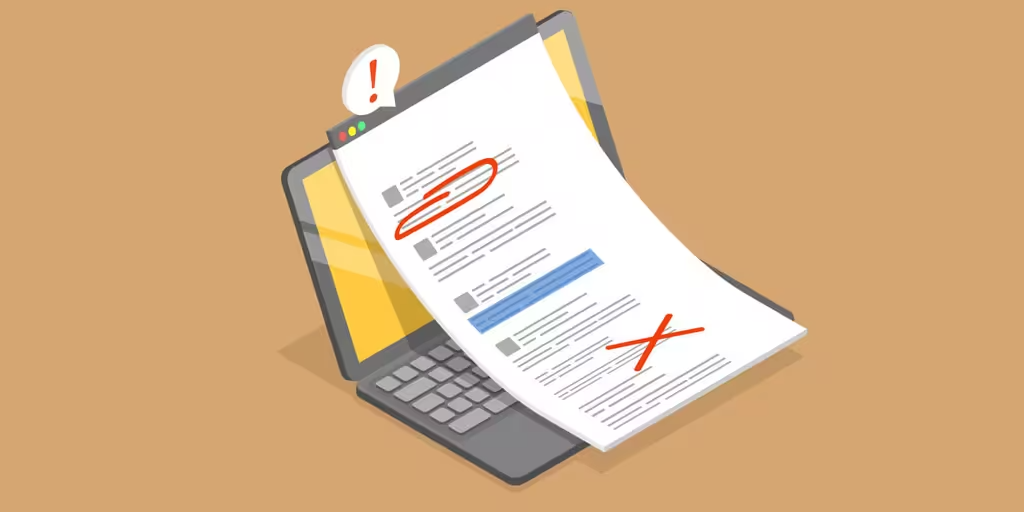How Student-Athletes Can Customize Their Resume to Stand Out in Today’s Job Market

For student-athletes, the job market presents unique challenges, but it also offers distinct opportunities. The blend of sports experience and academic achievements equips student-athletes with transferable skills, but to capture a recruiter’s attention, it’s essential to tailor your resume for each job application. While it may seem like a lot of extra work, career experts agree that resume customization is one of the most effective ways to ensure your resume stands out.
Tom, a job-seeker looking for guidance, shared his frustration after applying for over 100 jobs without securing an interview. “My wife says I must customize the resume for every job I apply for. That’s a lot of work, but is that what it takes to be successful in today’s tough job market?” The answer, according to career experts, is yes. Customizing your resume is crucial for breaking through the noise and demonstrating how your skills and experiences directly align with a potential employer’s needs.
Why Customization is Key for Student-Athletes
Theresa Chow, Senior Manager at Clark Nuber, emphasizes that sending a generic resume to multiple employers is no longer effective. “Recruiters are looking for a clear fit for the role, and if a resume doesn’t show that, it’s likely to be overlooked,” she says. For student-athletes, this means highlighting skills like teamwork, leadership, discipline, and time management—traits that are highly valued across industries. When customizing your resume, focus on these transferable skills and tailor them to fit the job you’re applying for.
Sarah Null, Chief HR Officer at GLP Attorneys, further explains that customizing your resume is not only about aligning your skills with the job description but also connecting with the organization’s mission. “When you demonstrate a genuine interest in the company, it shows that you’re not just applying for any job,” Null says. This is particularly important for student-athletes, who can leverage their sports experience to align with an organization’s values, such as dedication, resilience, and a results-oriented mindset.
Speeding Up the Customization Process
For student-athletes, time is often limited due to demanding training schedules, so resume customization should be efficient. Adrienne Tom, an award-winning executive resume writer, suggests creating a master resume that includes all relevant skills, achievements, and experiences. This master resume can then be customized quickly for each job by pulling out the most pertinent information. For student-athletes, this might include emphasizing leadership roles on the team, academic accomplishments, or community involvement. “This approach ensures that you have a solid foundation to work from and don’t have to rewrite your resume from scratch for each application,” Tom explains.
Hannah Morgan, Job Search Strategist at Career Sherpa, recommends developing a “master list” of accomplishments. “Having an extensive list of achievements will make customizing your resume much faster and easier,” she advises. For student-athletes, this can mean compiling a record of all awards, leadership roles, volunteer activities, and athletic achievements. When it’s time to apply, simply choose the most relevant accomplishments to feature.
Prioritize Quality Over Quantity
While applying for numerous positions might seem like the best approach, career experts suggest that quality is more important than quantity. Jessica Hernandez, CEO of Great Resumes Fast, advises student-athletes to apply for fewer roles but put more effort into tailoring each resume. “By customizing your resume for each job, you show the employer that you’re truly invested in the opportunity,” Hernandez says. This is especially important for student-athletes, who may need to highlight how their athletic experience translates into the professional world—whether that’s through teamwork, leadership, or a strong work ethic.
Erin Kennedy, CEO of Professional Resume Services, agrees with this approach and encourages job seekers to be intentional about the positions they apply for. “Customization is key, especially for student-athletes who have unique experiences that can give them an edge,” she says. Customizing your resume shows that you’re serious about the role and that you understand the employer’s needs.
The Role of AI in Resume Customization
With the rise of AI-powered job tools, student-athletes have a unique advantage. AI can help identify gaps in your resume by comparing your skills to the job description. Hannah Morgan suggests using AI tools to spot missing skills that can be addressed before submission. This is a great way to ensure your resume aligns with the specific job you’re applying for while making the process more efficient. However, career experts caution against relying too heavily on AI, as it can sometimes result in generic resumes. The goal is to balance automation with personalization, something that’s especially important for student-athletes who need their unique background and transferable skills to stand out.
Tailor for Success
In today’s competitive job market, student-athletes must go the extra mile to customize their resumes for each position they apply for. By focusing on the skills and experiences that directly align with the job description, student-athletes can showcase their unique value to employers. With a solid master resume in place, customization becomes easier and more efficient, allowing you to focus on quality over quantity. While it’s important to maintain a strong application, being intentional about each submission will help ensure your resume stands out in a crowded job market.
This approach benefits not only student-athletes looking to enter the workforce but anyone with a diverse skill set. By customizing their resumes and showcasing transferable skills—like leadership, resilience, and teamwork—student-athletes can increase their chances of success in any professional field.

